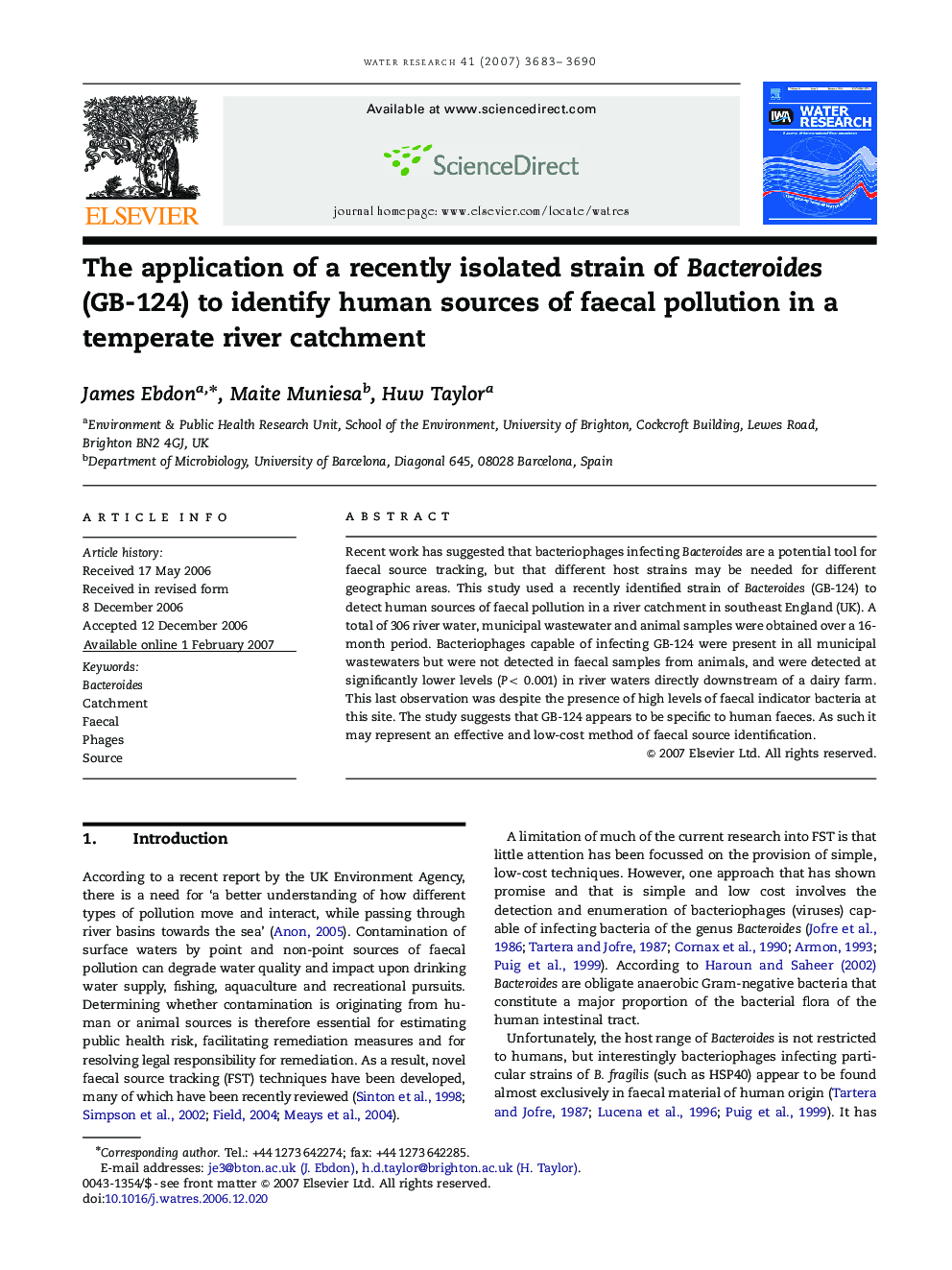| Article ID | Journal | Published Year | Pages | File Type |
|---|---|---|---|---|
| 4486209 | Water Research | 2007 | 8 Pages |
Recent work has suggested that bacteriophages infecting Bacteroides are a potential tool for faecal source tracking, but that different host strains may be needed for different geographic areas. This study used a recently identified strain of Bacteroides (GB-124) to detect human sources of faecal pollution in a river catchment in southeast England (UK). A total of 306 river water, municipal wastewater and animal samples were obtained over a 16-month period. Bacteriophages capable of infecting GB-124 were present in all municipal wastewaters but were not detected in faecal samples from animals, and were detected at significantly lower levels (P< 0.001) in river waters directly downstream of a dairy farm. This last observation was despite the presence of high levels of faecal indicator bacteria at this site. The study suggests that GB-124 appears to be specific to human faeces. As such it may represent an effective and low-cost method of faecal source identification.
